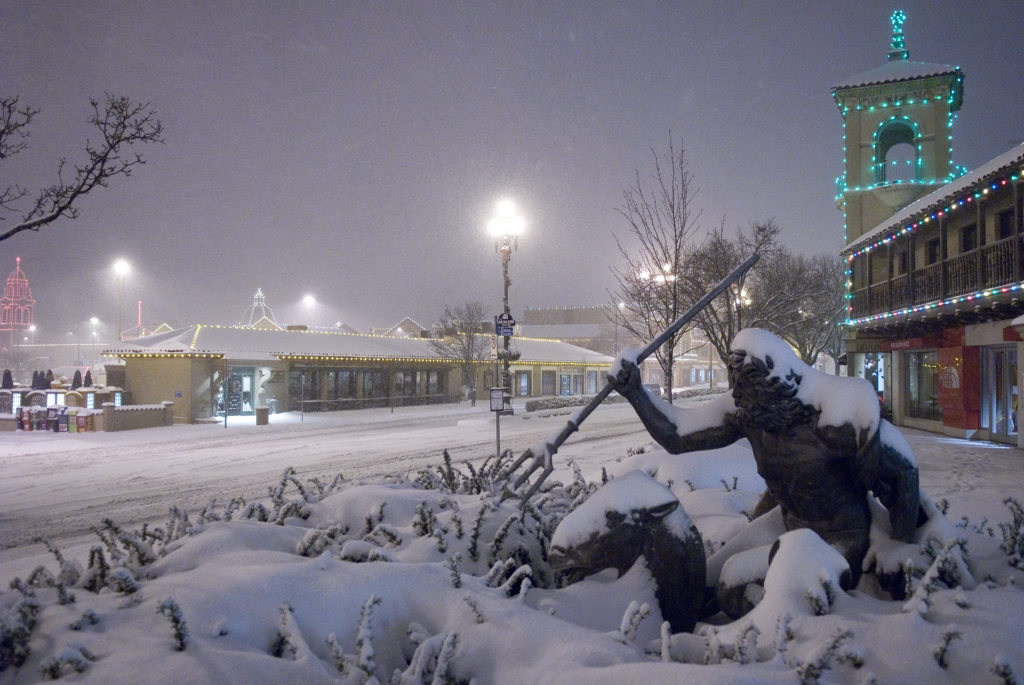BLOG NUMBER 19.45
Snow and ice can be far more than a nuisance. Frozen precipitation is often dangerous and holds the ability to lead to potentially serious and injurious impacts like slips and falls.

Residential and commercial property owners might wonder if they are responsible for cleaning areas of their land and surrounding areas. The answer to this question is a resounding yes. Moreover, failure to take such responsibility could leave said parties legally at fault should someone get injured as a result.
A Property Owner’s Responsibility
Anyone who owns a home or business is charged with the responsibility of ensuring the property in question is safe for those who frequent said locations. In legal terms, this is known as premises liability. Moreover, this duty of care mandates that residential or commercial proprietors warn unsuspecting guests or patrons of possible dangers.
Tips For Keeping Property Clean
Know The Important Places
Keeping a home or business’s premises free of frozen precipitation is a demanding and arduous responsibility. Numerous locations must be taken into consideration including:
*Driveways
*Parking garages
*Sidewalks
*Side streets
*Stairs
*Entrances and exits
Treat Surfaces With Salt
Prior to any ominous forecast, home and business owners are firmly urged to treat every pertinent portion of their premises with salt. Said substance melts snow and ice and may prevent significant or dangerous accumulations from collecting quickly.
Shovel Frequently
When measurable snow piles up, responsible parties are encouraged to shovel the appropriate grounds until either blacktop or surface material is visible. It is important to note that this is demanding work and can prove challenging for persons with known physical or systemic conditions.
Therefore, said task should be performed by someone in good physical shape. If a member of the household or business under scrutiny be unable to take on this duty, the services of those possessing such facilities should be retained.
Invest In A Plowing Surface
Occasionally, snow and ice accumulate to levels that even the youngest and strongest individuals cannot quickly shovel away. Ergo, residences and commercial entities are asked to consider hiring snowplowing companies equipped with trucks able to move large amounts of snow and ice back with efficiency and expediency.
Provide Adequate Warning
If those responsible for the property’s maintenance cannot execute these safeguards, they, at the very least, must provide guests or frequenters sufficient warning. For example, they should post caution signs explaining the appropriate locations have not been plowed or shoveled and to proceed carefully.
Steps An Injured Party Can Take
Should the individuals in question fail to perform any of the aforementioned duties, a slip and fall injury victim can take civil action against said proprietor.
That said, there are specific endeavors prospective plaintiffs should partake in to strengthen their argument including:
- Taking copious notes about the events precipitating the incident highlighting the condition of the property in the area the mishap occurred
- Capturing photos of the location in question
- Obtaining the names and contact information of eyewitnesses wherever applicable
- Receiving a comprehensive medical assessment, documenting injuries that can be connected to the accident
When the preceding actions have been completed, potential complainants are implored to seek an experienced slip and fall lawyer’s counsel.
Yielding A Successful Outcome
Slip and fall injuries fall under the broader category of civil litigation known as personal injury law.
Success in such cases mandates plaintiff and said subject’s legal staff demonstrate the home or business owner under debate demonstrate that:
- A hazardous situation existed on the property the incident took place
- Those charged with the premises’ upkeep were aware of these perils and did either neglected to address said issues or provided guests or customers no heads up
- The plaintiff’s injuries were related to the fall and no other injury or health problem
- The damages the plaintiff seeks are connected to these injuries and no other cause
An experienced personal injury lawyer will review a plaintiff’s claims and determine if the potential client has a viable argument. If such conclusions are of the affirmative, said legal professional can devise the most appropriate strategies.
DISCLAIMER: Information contained in this Website and blog is intended for informational purposes only and do not necessarily reflect the direct opinions, views or practices of Swenson Consulting or its consultants. The individuals who maintain this blog work for Swenson Consulting. The information, comments and links posted on this blog do not constitute legal advice. No attorney-client relationship has been or will be formed by any communication(s) to, from or with the blog and/or the blogger. All decisions relating to the content of the website blog belong to the blogger and management company responsible for the blog for the purpose of aggregating relative industry specific information related to snow removal.
